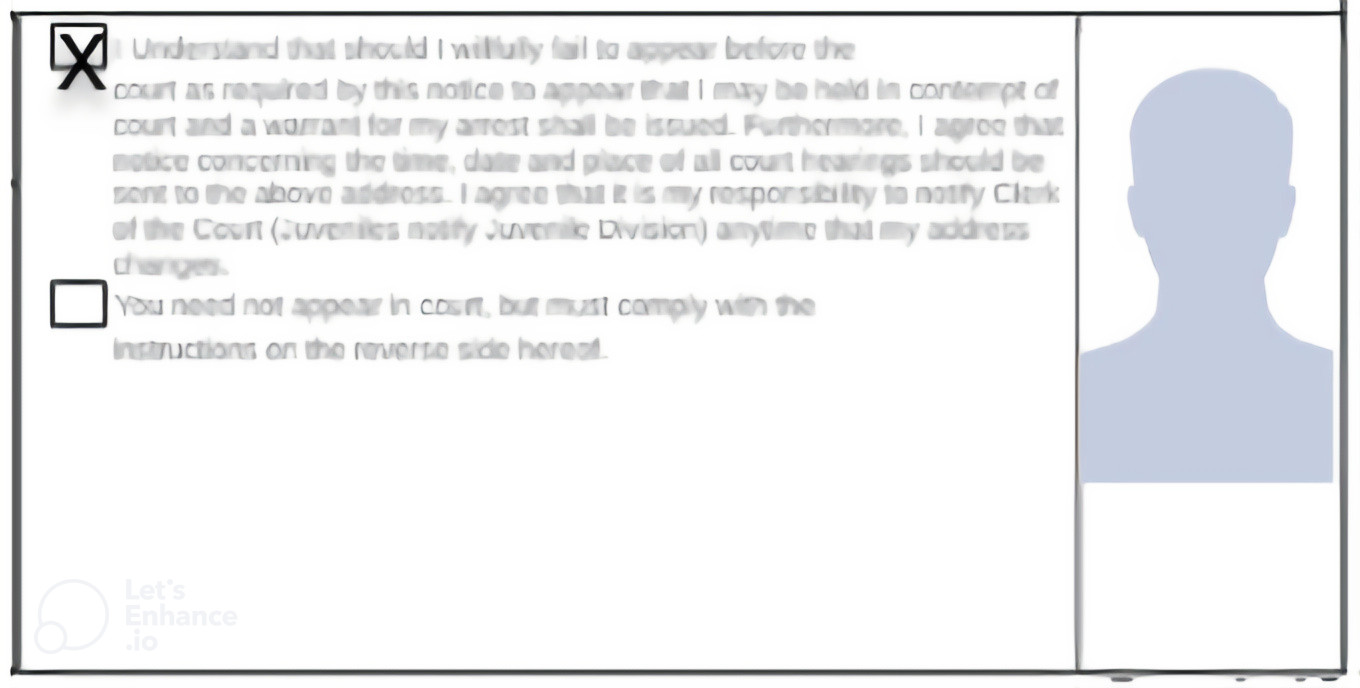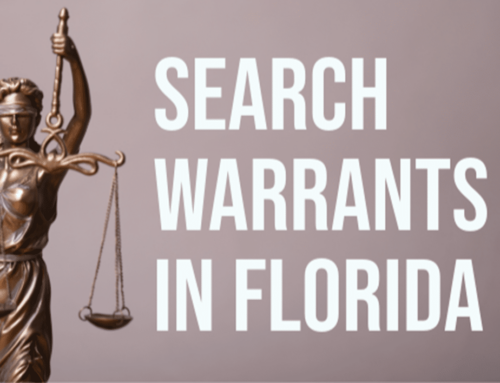What Is a Notice to Appear?
You likely have many questions if you or a loved one has received a notice to appear (NTA) for a criminal case in Miami-Dade County. As experienced Florida criminal defense attorneys, we understand this can be stressful. This guide explains key things about notices to appear in Florida, your rights and options, and how an attorney can help.
A “Notice to Appear” is defined in Florida Rule of Criminal Procedure 3.125 as a written order issued by a law enforcement officer instead of a physical arrest requiring a person accused of violating the law to appear in a designated court or governmental office at a specified date and time.
Police officers can issue a notice to appear instead of arresting you. As a practical matter, the officer would issue you what looks like a citation. You would schedule a court appearance, and then the criminal process would be the same as if you had been arrested.
What Crimes Allow a Notice to Appear?
Notices to Appear are only allowed for misdemeanor or ordinance violations, not felonies. Common misdemeanors where notices are issued include petit theft, driving with a suspended license, possession of marijuana, resisting an officer without violence, and underage drinking offenses.
How does a police officer decide whether to make an arrest or to issue a Notice to Appear?
A police officer can only issue a Notice to Appear for a misdemeanor or municipal ordinance violation, not a felony. The officer may issue the Notice to Appear in lieu of arrest unless:
- you fail or refuse to sufficiently identify yourself or supply the required information
- you refuse to sign the notice to appear
- the officer has reason to believe that your continued liberty constitutes an unreasonable risk of bodily injury to the accused or others
- you have no ties with the jurisdiction reasonably sufficient to assure your appearance, or there is a substantial risk that you will refuse to respond to the notice
- the officer has any suspicion that you may be wanted in any jurisdiction or
- It appears that you previously failed to respond to a notice or a summons or violated the conditions of any pretrial release program.
How Does an Officer Decide Whether to Issue a Notice to Appear?
Officers consider several factors when deciding between arrest or Notice to Appear, including:
- Local department policies
- Severity of alleged offense
- Level of cooperation
- Ties to community
- Prior criminal history
- Risk of continued threat
What if I don’t appear at my court date?
If you fail to appear in court as the Notice requires, the judge will issue a warrant for your arrest. You may also face additional charges for failure to appear.
Why Promptly Contacting a Defense Attorney is Critical
Upon receiving an NTA, speaking to a defense attorney immediately is vital because:
- Prosecutors often start building their case right away
- Early assertion of rights key – missing deadlines risks losing opportunities
- Experienced attorneys may get charges reduced or dismissed through prompt negotiation
- Earlier preparation strengthens the potential trial defense
Do not delay engaging legal help if served an NTA. Swift representation is essential.
Weighing Your Potential Options After an NTA
Paths forward after an NTA could include:
Vigorously Contesting the Charges
Plead not guilty and fight the accusations aggressively through motions and trial. The goal is full dismissal or acquittal.
Pleading to a Reduced Charge
Sometimes, counsel may negotiate charge reduction through plea bargains to avoid trial risk. While complete dismissals are rare without significant leverage, reduced pleas are relatively common.
Pleading As Charged
When evidence is very strong for prosecution, accepting responsibility through a guilty/no contest plea in return for lesser sentencing may become necessary. The attorney helps assess realistic odds at trial.
Diversion Programs
First-time, non-violent defendants may qualify for pretrial diversion programs with classes, probation, etc. Successful completion = dismissed charges. Acting promptly is key.
An experienced lawyer can advise which path above, or other option, best protects your interests after an NTA.
Choosing the Right Attorney Matters
Consider local court expertise, negotiation results, trial experience, breadth of legal team/resources, and client reviews when vetting counsel. Legal defense is not one-size-fits-all – find advocates aligned to your specific needs.
Trust Our Firm to Fight for You
Our firm has decades of success defending notice to appear cases by aggressively negotiating reduced/dismissed charges whenever possible. Let our firm help you through this challenge. Call today for strategic guidance and compassionate support.
CALL US NOW for a CONFIDENTIAL INITIAL CONSULTATION at (305) 538-4545, or take a moment to fill out our confidential and secure intake form.* The additional details you provide will greatly assist us in responding to your inquiry.
*Due to the large number of people who contact our law office requesting our assistance, it is strongly suggested that you take the time to provide us with specific details regarding your case by filling out our confidential and secure intake form. The additional details you provide will greatly assist us in responding to your inquiry promptly and appropriately.
THERE ARE THOUSANDS OF LAW FIRMS AND ATTORNEYS IN SOUTH FLORIDA. ALWAYS INVESTIGATE A LAWYER’S QUALIFICATIONS AND EXPERIENCE BEFORE MAKING A DECISION ON HIRING A CRIMINAL DEFENSE ATTORNEY ATTORNEY FOR YOUR MIAMI-DADE COUNTY CASE









